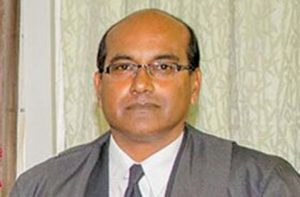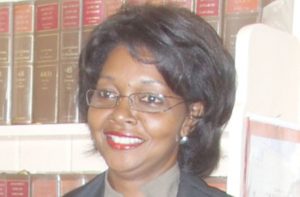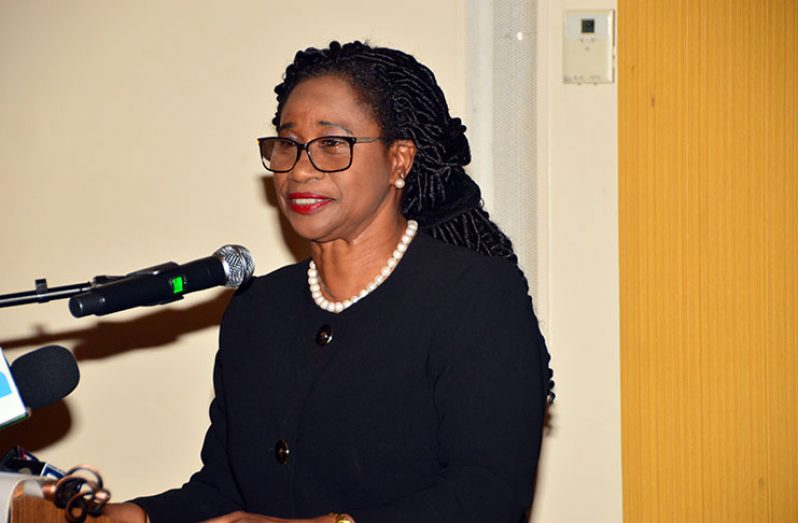—Court of Appeal invalidates no-confidence vote
…majority ruling says 34 votes required to topple government
THE Court of Appeal on Friday ruled that the No-Confidence Motion was not validly passed in the National Assembly, thereby overturning the High Court’s decision of Chief Justice Roxane George-Wiltshire.
Before a packed courtroom, Chancellor of the Judiciary (ag) Yonette Cummings-Edwards and Justice of Appeal Dawn Gregory ruled that the Opposition needed 34 votes to defeat the Government and not 33. Justice Rishi Persaud, however, had a dissenting opinion. The decision was arrived at in the appeal cases of ‘The Attorney General v Christopher Ram and others,’ and ‘The Attorney General v The Speaker of the National Assembly and others’ brought by the Government through the Attorney General, Basil Williams.
In handing down her decision, the Chancellor noted that all parties in the two cases agreed that in order to pass a no-confidence motion against a Government, an absolute majority is required and not a simple majority.
In total agreement with the oral submissions made by Grenada Queen’s Counsel, Dr. Francis Alexis, the Chancellor ruled that in order to arrive at an absolute majority in a National Assembly with an uneven number of elected members, the half plus one formula must be utilised and the resulting fraction must be rounded up.
“To have one over all rivals, one could approach it this way – half of 65 is 32.5, if you are to have one over all rivals, and you add one to that, that takes you to 33.5, and because of the principle of rounding up, and there being no half voter, that 33.5 when you round it up, gives a figure of 34,” she explained.

Justice Cummings-Edwards explained that if the simple calculation of ‘one over your rivals’ is applied or simple mathematics, the ratio of 33:32 is arrived at, and such, amounts to a simple majority.
“Given the importance of the procedure of the No-Confidence Motion, the corresponding effect of that vote and the principles as argued in relation to a stable government, an absolute majority is in keeping with the provisions of Article 106,” the Chancellor stated, while emphasising that the vote for an absolute majority is more than one over all rivals combined or a greater number. This simple mathematical calculation, which was submitted by Anil Nandlall – the attorney who represented the Opposition Leader Bharrat Jagdeo, would only lead to a simple majority, she reiterated.
The Chancellor noted that Chief Justice George-Wiltshire “did not see the need to apply the principle of rounding up’ as discussed in the case of Hughes v Rogers (Anguilla). “In her view the absolute majority would have effectively applied without the necessity for the fraction and rounding up but as mentioned before in an odd number Parliament the fraction will result whenever half of that number is sought to be achieved,” Justice Cummings-Edwards said.
Citing the case of Hughes v Rogers, she said Justice Adrian Saunders as he then was, in interpreting what constituted a quorum in a 11-member Assembly, said the arising fraction cannot be rounded down but rather up. “So applying the principles discussed in the particular case at hand, I am of the view that the majority as found by the learned Chief Justice, applies to the case of a simple majority but in relation to a case of an absolute majority, the figure to be arrived at, is that of 34 votes,”
As stated by the Attorney General, Basil Williams SC in his oral submissions, the Chancellor
said a purposive approach was required in the interpretation of the Constitution.
Justice Gregory, in arriving on her decision, also alluded to the submissions of Queen’s Counsel Alexis. The Justice of Appeal said while Nandlall argued that the word ‘majority’ was unambiguous, all the attorneys in the matter underscored the importance of having an absolute majority.
Citing the case Kilman v Speaker of the Parliament of the Republic of Vanuatu, Justice Gregory said the whole is divided into two, and one added as was done in the Court of Appeal. In that case, the 52-Member Parliament was divided into half, and one added resulting in 27 – the “outright majority.”
“If the same process is applied to an odd number, in this case the 65, dividing 65 by 2 would lead to a fraction of 32.5, and when the plus one factor is applied, the result is a majority of 33.5. When 33.5 is rounded down to 33 it produces a simple majority of 65, that is 33:32, however, to produce an absolute majority of 65, 32.5 must be rounded up after the plus one factor is applied and that yields a majority of 34 in keeping with the jurisprudence on the treatment of fractions as we saw in Hughes and Rogers,” Justice Gregory explained.
The Justice of Appeal said the two-stage process as submitted to the court gives true effect to the requirement of Article 106 (6) that a no-confidence motion must obtain a majority of all the elected members of the National Assembly. “By passing the two stage process and treating only with 33 as the greater number of 65 renders in my view a result that is anomalous, in that the same figure 33 when we examine it, 33 is a simple majority of 64 using the two stage process of dividing in half and adding one, so 33 is a simple majority of 64, likewise 33 is an absolute majority of 64 because it is an even number assembly…Continuing on with this assessment 33 will also be a simple majority of 65, as well as an absolute majority of 65, so to my mind, therein lies a flaw,” Justice Gregory reasoned.
According to her, 33 as an absolute majority is flawed and untenable, falls short of the requirement of Article 106 (6). In Guyana, she said, a No-Confidence Motion requires an absolute majority and not a simple majority. On that basis, Justice Gregory also ruled that the No-Confidence Motion against the Government was not carried.
Dissenting opinion
Justice Persaud, however, disagreed with conclusions drawn by the Chancellor and Justice Gregory. Justice Persaud supported the views of the Chief Justice that the greater number in the National Assembly constituted a majority. According to him, the Article was clear and unambiguous. “The majority contemplated by Article 106 (6) with reference to an uneven number of all members, simply means to my mind the greater number which is 33.
It must be noted here that this meaning has informed the practice of our National Assembly of many years, as such base the declaration of the Speaker and accepted by all at the time. Article 106 (6) does not remotely provide for a mathematical formula for the determination of the majority – none will be read into the article. The clear meaning of the word must prevail as the drafters intended,” Justice Persaud stated.

He said with all due respect to Queen’s Counsel Alexis, the two-stage formula first dividing by one-half and then rounding up to the nearest whole plus one has no application in Guyana. But with him being the lone dissenting voice in the panel of three, the views of the majority ruling was asserted and the appeals brought by the Attorney General were allowed, and the No-Confidence Motion overturned. This means the Government will remain in office for its constitutional five-year-term. All plans for elections this year will more than likely be cancelled. Senior Counsel, Rafiq Khan who represented Speaker of the National Assembly, Dr Barton Scotland says he will abide by the ruling.





.jpg)








